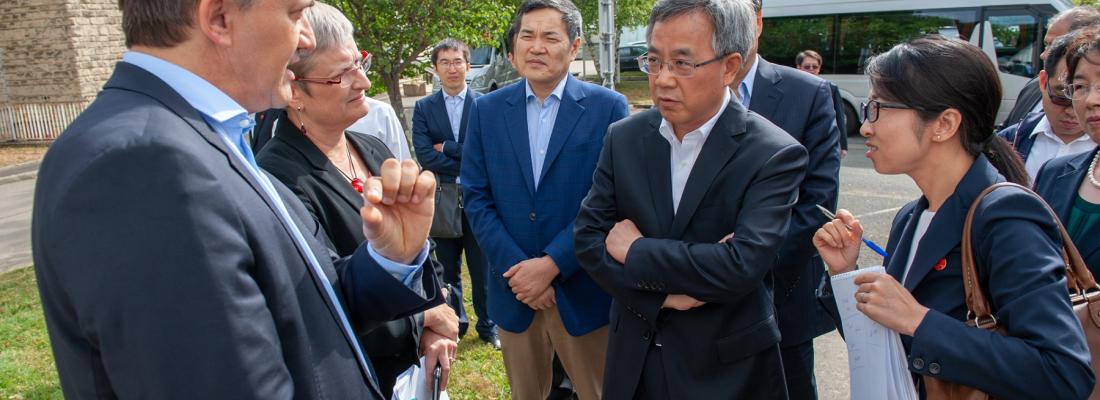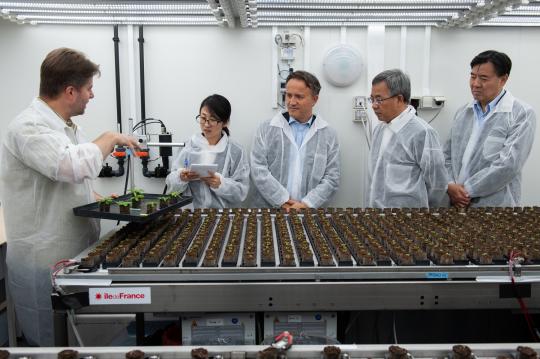Society and regional strategies Reading time 2 min
INRA hosts the Chinese Vice Premier
Published on 12 July 2018

INRA has forged partnerships with Chinese universities and research organisations for more than thirty years. When he took over the helm of INRA, Philippe Mauguin began working to strengthen these relationships by meeting partners in Beijing, Suzhou and Shanghai in December 2017. Agreements for several international associated laboratory (LIA) projects were signed in January 2018 in China1 during French President Emmanuel Macron’s visit to China, as part of the “Franco-Chinese Year of the Environment”.
Today, INRA’s President hosted the Chinese Vice Premier and his delegation of around thirty individuals as well as the Chinese Ambassador at INRA’s centre in Versailles. Discussions focused on two themes: plant technologies and the institute’s comparative experimental initiative for arable crops.
Visit to the Phenoscope at the Institut Jean-Pierre Bourgin, INRA Versailles

Scientist Olivier Loudet presents research carried out using the high-throughput crop phenotyping device for growing and observing hundreds of model plants, grown in individual pots. The device is generally used to monitor the growth of numerous genotypes in controlled water conditions (e.g., drought).
The group also visited one of INRA’s most robust organic and agroecological experimental systems. For twenty years, it has been used to compare four growing systems for arable crops over the long term and under the same pedoclimatic conditions: “productive”, “integrated”, “organic” with a four-year rotation of wheat and alfalfa, and “under plant cover” using alfalfa as a cover crop. The initiative is currently studying the long-term effects of crops on the environment, especially on soil fertility and carbon storage, to find future solutions and tackle global food and sustainability challenges.
Philippe Mauguin announced that several partnerships for excellence with Chinese scientific partners would be finalised during his next trip to China this autumn.
